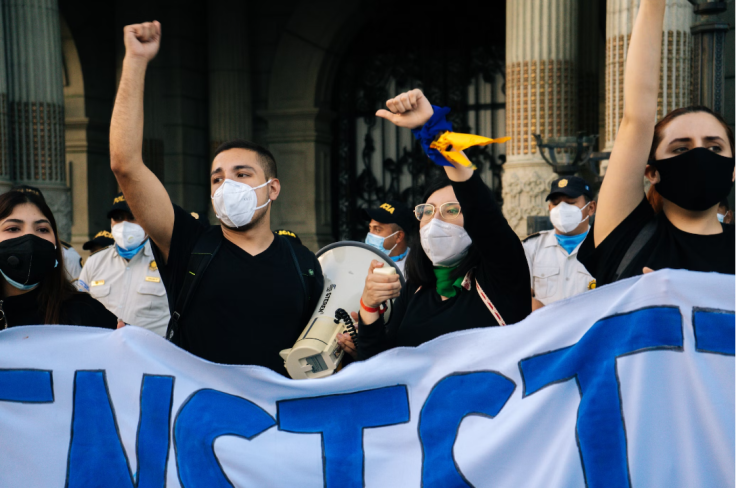Presidents of Top US Universities To Address Campus Antisemitism Issues Before Congress
ByThe presidents of three prestigious U.S. universities- Harvard, the University of Pennsylvania (Penn), and the Massachusetts Institute of Technology (MIT)- are set to testify before a congressional committee next week on claims of antisemitic protests on their campuses. The hearing, titled "Holding Campus Leaders Accountable and Confronting Antisemitism," will provide a platform for Harvard's Claudine Gay, Penn's Liz Magill, and MIT's Sally Kornbluth to address ongoing tensions stemming from the Israel-Hamas war.

Congressional Inquiry Into Antisemitic Demonstrations
The House education and workforce committee, chaired by Republican Virginia Foxx, will host the testimony. Foxx emphasized the rise in antisemitic demonstrations on college campuses in recent weeks, with college administrators facing criticism for allegedly allowing such rhetoric to persist. The hearing aims to hold campus leaders accountable for fostering a safe learning environment and prompt decisive action against antisemitism.
The U.S. Department of Education's office for civil rights has initiated investigations into possible ancestry or ethnic discrimination at several universities, including Cornell, Penn, Wellesley College, Cooper Union, Lafayette College, the University of Tampa, and Columbia. At least five of these investigations involve allegations of antisemitic harassment, reflecting the nationwide surge in reports of antisemitism and other forms of discrimination.
Challenges for University Leaders
University leaders find themselves in a delicate position, navigating the fine line between legitimate protest and discrimination or hate speech. Upholding academic and political speech freedoms while addressing rising concerns of antisemitism on campuses poses a significant challenge. Many universities, including Harvard, emphasize freedom of expression as a cornerstone of a diverse and inclusive community.
A recent poll revealed that over half of Jewish U.S. college students feel unsafe, reflecting concerns about the adequacy of measures taken by universities to protect their students. Harvard, in particular, has faced criticism from alumni, including Senator Mitt Romney, for perceived inadequacies in ensuring the safety of Jewish students. Donors have threatened to withdraw funding, highlighting the financial stakes involved.
Billionaire investor Bill Ackman, an alum of Harvard, has urged university administrators to discipline protesters violating rules to prevent more aggressive, disruptive, and antisemitic actions. Harvard's president, Claudine Gay, responded to concerns, stating that the institution rejects all forms of hate and is committed to addressing them. The university has initiated an examination of how antisemitism manifests within its community.
Islamophobia and Other Claims
While the House hearing primarily focuses on antisemitism, there are concurrent claims of Islamophobia on campuses. A recent incident at the University of Southern California led to the suspension of a professor who allegedly made inflammatory remarks about Palestinians. The intersection of antisemitism and Islamophobia underscores the need for comprehensive measures to address hate speech targeting multiple communities.
Columbia University witnessed around 400 students gathering to criticize the suspension of two pro-Palestinian student groups, Justice in Palestine (SJP) and Jewish Voice for Peace (JVP). The university justified the suspension, citing policy violations related to campus events and threatening rhetoric. The incident highlights the challenges universities face in balancing free speech with the prevention of hate speech.
The upcoming congressional hearing serves as a crucial platform to address the complex dynamics of antisemitism and related issues on U.S. college campuses. University leaders will have an opportunity to respond to concerns, outline their commitment to fostering inclusive environments, and discuss the challenges they face in navigating the delicate balance between free speech and the prevention of hate speech. As tensions persist, a collective effort is required to ensure the safety and well-being of all students, irrespective of their backgrounds or beliefs.
RELATED ARTICLE: American Universities Have Been Complicit, Resulting In Today's Antisemitism
© 2026 University Herald, All rights reserved. Do not reproduce without permission.








